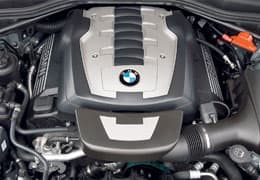“What can I do to make my car faster?”
Is a question we regularly get from people calling in to find out what options they have to get more power out of their BMW. The short answer is if your car is naturally aspirated, not much. If your car is forced induced with a turbo, then how up to date are you on your maintenance and what is your budget?
All engines require air, fuel, and spark to run. The more air and fuel you can cram into each cylinder the more power the engine can make. Naturally aspirated engines are limited by atmospheric pressure and rely on engine displacement to induce air into each cylinder. Naturally aspirated engines do have some options such as more aggressive cam shafts, differentials with more aggressive gear ratios. All of these mods tend to be time consuming to be installed and require computer tuning for the car to receive the full benefit. All this can be quite costly for marginal horsepower and torque gains.
Engines equipped with turbos can be a bit different. Turbos work as mechanical air pumps driven off your exhaust gas that force more air into the engine. That way the engine is not dependent displacement and atmospheric pressure to draw in air and make power. Turbos can be tuned and modded to force more even more air than the manufacturer intended. This substantially increases horsepower and torque at the cost of reliability and potentially your warranty.
BMW turbo engines can make great power when modded, but also expect higher wear and tear on power train components. When a customers tells us they want to make more power from their boosted BMW, we always consider the car’s mileage and maintenance history. If the car is higher mileage and hasn’t been meticulously maintained then I would advise against it as the owner can look forward to more wear and tear from increased heat and pressures the engine will experience can cause older engine seals and gaskets to leak. With great horsepower comes greater maintenance invoices.


Leave a Reply